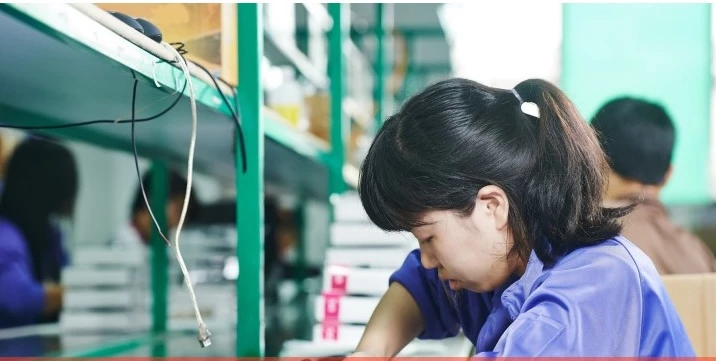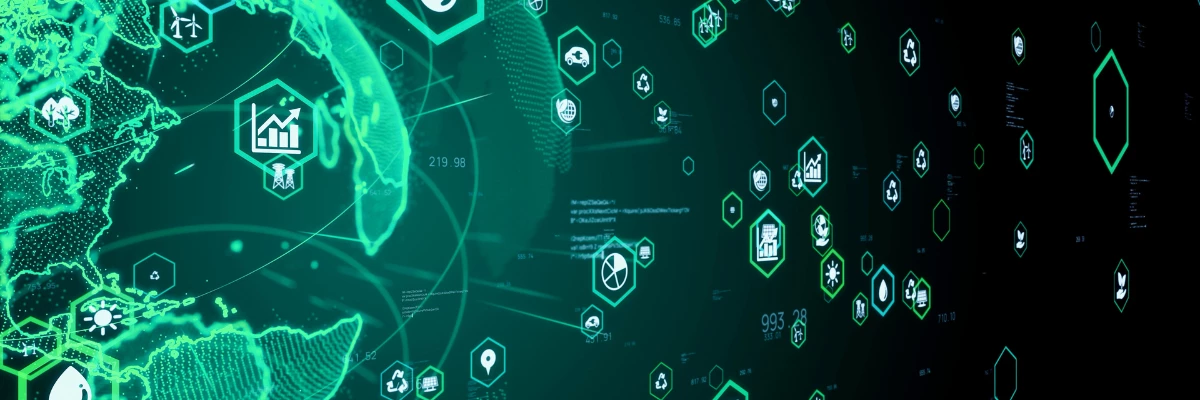The Corporate Sustainability Due Diligence Directive, known as “CS3D”, was definitively adopted on Wednesday, April 24, 2024, by the European Parliament. The directive now needs to be officially approved by the Council and signed before being published in the EU Official Journal. It will enter into force 20 days later. Member States will then have two years to transpose it into their national legislation.
Sanctions of up to 5% of global turnover, as well as companies being held responsible for damages caused by non-compliance with their due diligence obligations, including full compensation for victims.
A regulatory, economic, but above all reputational challenge.
What are the impacts and timelines for contracting authorities in both the private and public sectors? How can I ensure compliance with my new obligations in a secure and simple manner?
The Corporate Sustainability Due Diligence Directive, known as “CS3D” – was definitively adopted on Wednesday, April 24, 2024, by the European Parliament. The directive now needs to be officially approved by the Council and signed before being published in the EU Official Journal. It will enter into force 20 days later. Member States will then have two years to transpose it into their national legislation.
The context
An objective and ambitions
This text, initiated by the European Commission on February 23, 2022, aims to require companies and their upstream and downstream partners to prevent, stop, or mitigate their negative impact on human rights and the environment, including at the levels of supply, production, and distribution. In practice, these obligations include slavery, child labor, labor exploitation, biodiversity erosion, pollution, or destruction of natural heritage.
This text is inspired by the French Law on the Duty of Vigilance of 2017, which it expands upon, albeit less ambitiously than initially planned. By articulating with other recent European regulations (notably CSRD), it confers an increasingly strategic role to certain operational departments, particularly the purchasing department. It makes the deployment of preliminary and continuous third-party assessment solutions within organizations more than essential.
Implementation modalities
The rules contained in the directive will apply to:
- European companies and parent companies employing more than 1,000 people and with a global turnover exceeding 450 million euros;
- franchises in the EU with a global turnover exceeding 80 million euros if at least 22.5 million euros were generated from royalties; and
- non-European companies, parent companies, and franchises from third countries that reach the same turnover thresholds in the EU.
The new rules (except for communication obligations) will apply progressively to European companies (and non-European companies reaching the same turnover thresholds in the EU):
- from 2029 for all other companies falling within the scope of the directive (including those with more than 1,000 employees and a global turnover exceeding 450 million euros).
- from 2027 for companies with more than 5,000 employees and a global turnover of more than 1,500 million euros;
- from 2028 for companies with more than 3,000 employees and a global turnover of more than 900 million euros;
The challenges and issues
An expanded duty of care that integrates climate issues
Companies within the scope of the directive will need to integrate the duty of care into their policies, make necessary investments, obtain contractual guarantees from their partners, improve their management plan, or provide support to partner small and medium-sized enterprises to ensure they comply with the new obligations.
Companies will also need to adopt a transition plan to make their business model compatible with the 1.5°C global warming limit set by the Paris Agreement.
Support from Europe and Member States justifying significant sanctions
Member States will need to provide companies with detailed online information about their due diligence obligations through practical portals containing the Commission’s guidelines. They will also be obligated to create or designate a supervisory authority responsible for investigating and imposing sanctions on companies that do not comply with their obligations. This will include denouncing these companies and imposing fines of up to 5% of their global net turnover.
To support cooperation and enable the exchange of best practices, the European Commission will establish a European network of supervisory authorities to support cooperation and enable the exchange of best practices.
The specific mobilization of public buyers
The agreement provides that compliance with the Corporate Sustainability Due Diligence Directive could be considered as a criterion for the award of public contracts and concessions.
KEY POINTS
The main issues faced by contracting authorities are as follows:
- The larger number of companies concerned compared to the French duty of vigilance
- The implementation of governance and processes for preliminary and continuous evaluation of their partners for the companies concerned.
- The complexity and diversity of required verifications.
- The significant number of controls and sanctions provided by the States.
- The need for public buyers to identify their concerned suppliers now and ensure compliance with their obligations when the time comes.
Solutions provided by Aprovall
Using Aprovall allows contracting authorities to meet their new regulatory obligations and also deploy only the necessary controls, leading to an optimization of associated resources and costs.
These targeted controls can also be subject to a process and documentation that can be integrated into Aprovall’s solutions
These new solutions allow, through attributes and rules, to automate and secure an evaluation process for only the concerned third parties in a traced and documented manner.
In this case, the identification of the concerned supplier (turnover, workforce, capital shares, country) allows triggering a form (structured document) for declaration in line with the European framework.
This Aprovall process thus allows:
- The identification and qualification of all third parties (suppliers, co-contractors, subcontractors, partners…) regardless of the country and size of the company;
- The identification of third parties concerned by these same obligations (chain of responsibility) based on their size and deployment schedule, for example;
- The automated deployment of evaluation processes linked to these compliance requirements (due diligence obligations, labor rights, gender equality) or maturity (e.g., decarbonization of purchases, biodiversity…);
- The implementation of a dynamic global mapping of third parties with materialization, for example, of the risk level according to the different themes of the CS3D Directive;
- The ability to demonstrate in case of audit all continuous evaluation processes deployed.
Ultimately, the validation of the supplier by authorized users within the contracting authority.
In summary
The new platform proposed by Aprovall allows contracting authorities concerned by this new regulation to deploy a digitized, secure, and comprehensive process for supplier evaluation, ensuring:
- Compliance with their obligations and limitation of associated legal risks;
- Identification and also securing of their supply chain with regard to the concerned third parties;
- Implementation of preventive actions to limit their exposure;
- A dynamic global mapping of partners with materialization, for example, of the risk level (compliance/maturity) according to the themes of the Directive.
These articles might interest you
-
 14 July 2024Duty of vigilance: A recent international report warns of companies’ non-compliance, particularly in FranceSolutionsThe World Benchmarking Alliancehas just published a report analyzing the practices of the 2,000 most important companies on the planet in terms of human rights due diligence. The “alarming” results show companies’ delay in this area, and French companies are far from being an exception to the rule. The countdown has begun before the European […]
14 July 2024Duty of vigilance: A recent international report warns of companies’ non-compliance, particularly in FranceSolutionsThe World Benchmarking Alliancehas just published a report analyzing the practices of the 2,000 most important companies on the planet in terms of human rights due diligence. The “alarming” results show companies’ delay in this area, and French companies are far from being an exception to the rule. The countdown has begun before the European […]Read more
 EN
EN FR
FR
